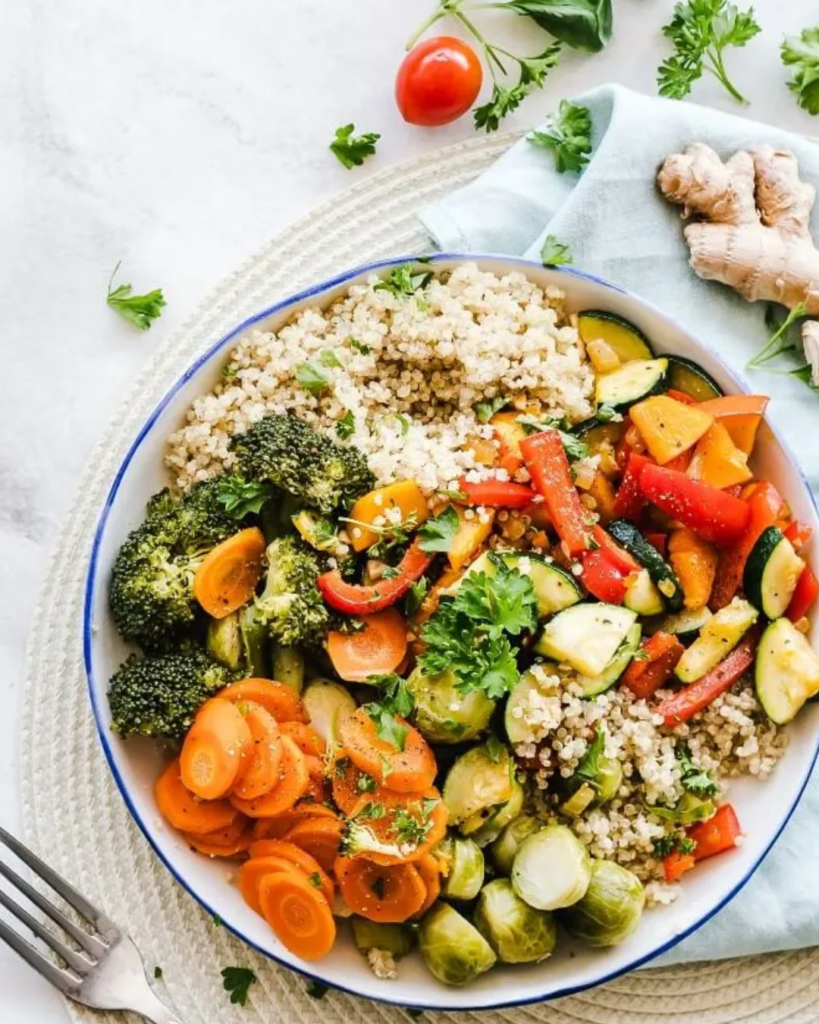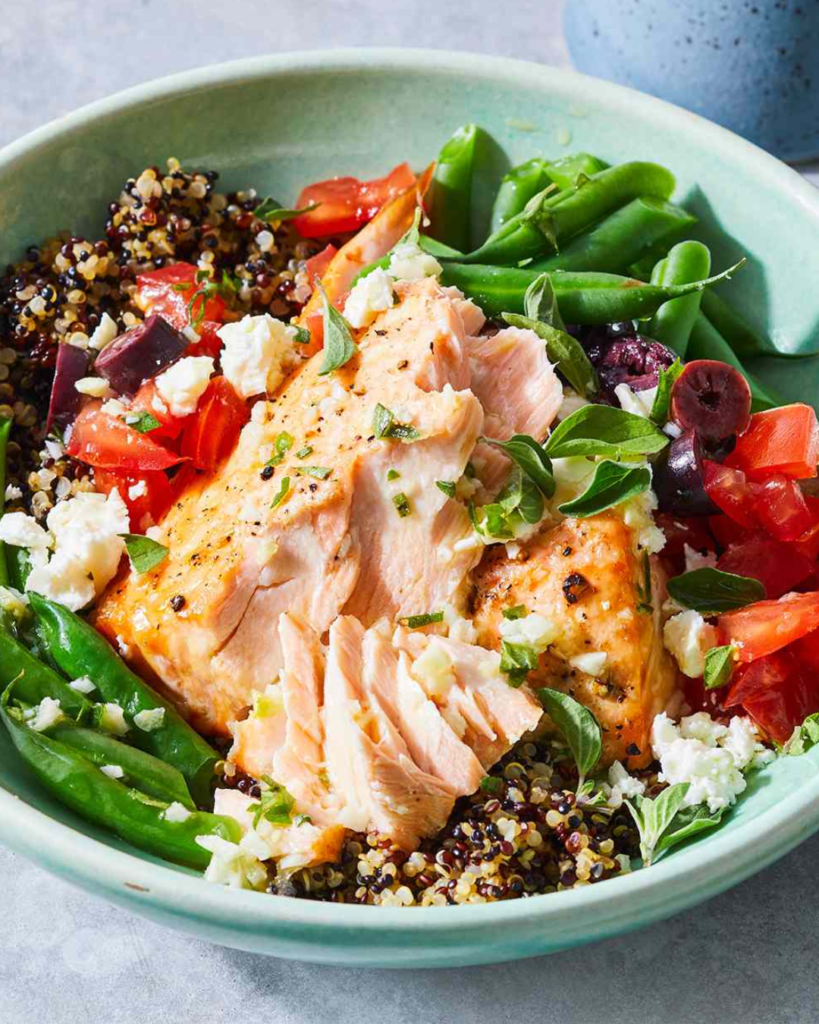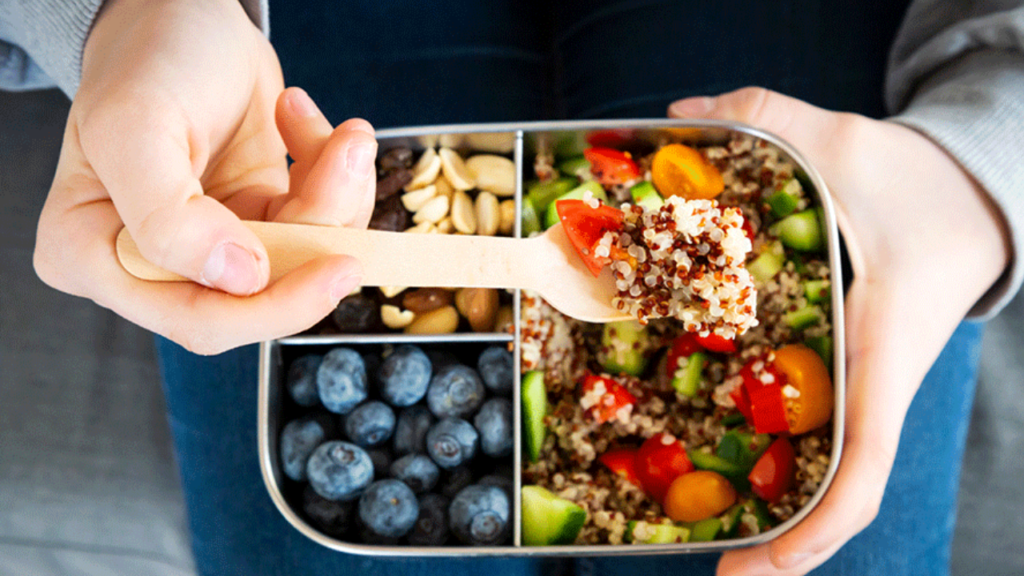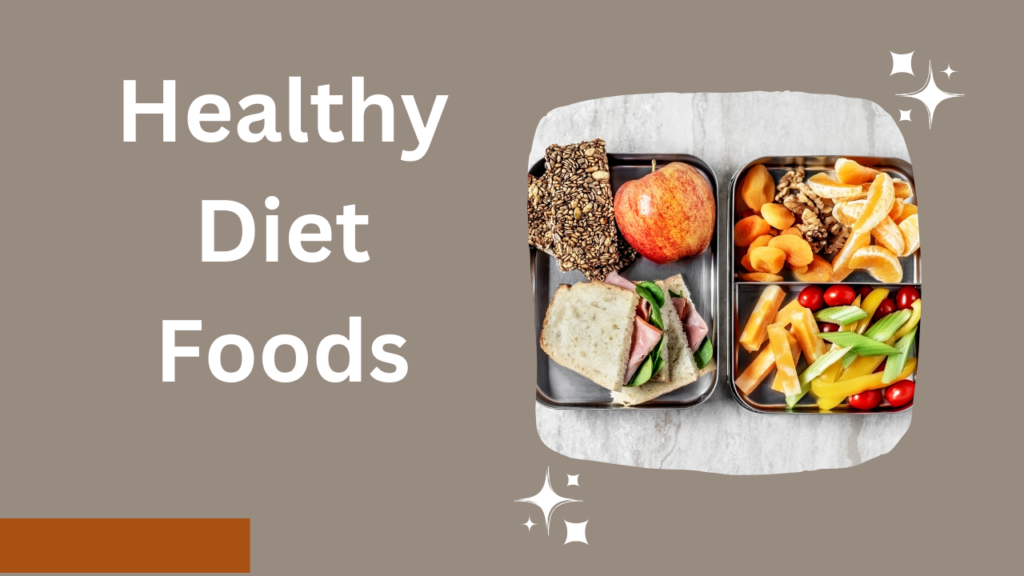Are you looking to revamp your eating habits and embrace a healthier lifestyle? If so, you’re in the right place! In this blog post, we’ll explore the world of healthy diet foods and uncover 10 nutritious options to incorporate into your daily meals.
Whether you’re aiming to kickstart a new diet plan or simply want to make better food choices, we’ve got you covered with expert tips and insights. Let’s dive in and discover how delicious and satisfying eating well can truly be!
What are the 10 healthy foods to eat?
When it comes to nourishing your body with the best foods, variety is key. Incorporating a colorful array of fruits and vegetables into your diet is a great starting point.
From leafy greens like spinach and kale to vibrant berries rich in antioxidants, nature’s bounty offers endless options for nutritious eating.
Whole grains such as quinoa, brown rice, and oats are excellent sources of fiber and essential nutrients that can keep you feeling full and satisfied. Lean proteins like chicken breast, fish, tofu, or legumes provide the building blocks for muscle maintenance and repair.
Healthy fats found in avocados, nuts, seeds, and olive oil are crucial for brain function and overall well-being. Don’t forget about dairy or dairy alternatives like yogurt or almond milk for calcium intake.
By incorporating these 10 healthy foods into your daily meals, you’ll be on track towards a balanced and wholesome diet that supports your health goals.
What do you eat for a healthy diet?

Eating a healthy diet is essential for overall well-being and vitality. It’s not just about restricting calories or following fad diets; it’s about nourishing your body with nutrient-dense foods that fuel you throughout the day. So, what should you eat for a healthy diet?
To begin with, try including a range of vibrant fruits and vegetables in your meals.These are packed with vitamins, minerals, and antioxidants that support your immune system and promote good health.
Include lean proteins like chicken, fish, tofu, or beans to help build and repair tissues in your body. Opt for whole grains such as quinoa, brown rice, or oats to provide sustained energy levels.
Healthy fats like avocados, nuts, seeds, and olive oil are important for brain function and heart health. And don’t forget about hydration – drink plenty of water throughout the day to keep your body functioning optimally.
By focusing on whole foods and listening to your body’s hunger cues, you can create a balanced and sustainable approach to eating well for life.
What are 25 healthy foods?
When it comes to maintaining a healthy diet, having a variety of nutritious foods is key. Here are 25 healthy options to incorporate into your meals:
1. Leafy greens like spinach and kale are packed with vitamins and minerals.
2. Berries such as blueberries, strawberries, and raspberries are rich in antioxidants.
3. Nuts like almonds, walnuts, and cashews provide healthy fats and protein.
4. Quinoa is a great source of plant-based protein and fiber.
5. Avocados are loaded with heart-healthy monounsaturated fats.
6. Salmon is an excellent source of omega-3 fatty acids for brain health.
7. Greek yogurt offers probiotics for gut health along with calcium and protein.
Remember to mix and match these foods to create balanced meals that nourish your body from the inside out.
How do I start my diet?
Embarking on a journey towards a healthier lifestyle by starting your diet can be both exciting and challenging. To kickstart your diet effectively, begin by setting clear and realistic goals for yourself.
Whether it’s incorporating more fruits and vegetables into your meals or reducing processed sugar intake, having specific objectives will keep you motivated.
Next, educate yourself about the nutritional value of different foods to make informed choices. Reading labels and understanding portion sizes are key factors in managing your calorie intake.
Experiment with new recipes and cooking techniques to keep things interesting while ensuring you’re consuming a variety of nutrients.
Remember to stay hydrated throughout the day as water plays a crucial role in digestion and overall well-being. Additionally, regular exercise is essential for complementing your dietary changes and promoting a healthy lifestyle.
Starting small and gradually building up momentum is key to long-term success in maintaining a balanced diet.
How to stay healthy?
For general well-being, leading a healthy lifestyle is crucial. One way to stay healthy is by incorporating regular physical activity into your routine.
Whether it’s going for a jog, practicing yoga, or hitting the gym, staying active can do wonders for both your body and mind.
Eating a balanced diet rich in fruits, vegetables, whole grains, and lean proteins is another key factor in staying healthy.
Fueling your body with nutritious foods will provide you with the energy needed to tackle each day while also supporting your immune system.
Getting an adequate amount of sleep each night plays a significant role in maintaining good health.
Quality rest allows your body to repair and recharge, ensuring you wake up feeling refreshed and ready to take on the day ahead.
In addition to physical activity and nutrition, managing stress levels is crucial for overall health.
Engaging in relaxation techniques such as meditation or deep breathing exercises can help reduce stress and promote mental clarity.
By prioritizing exercise, nutritious eating habits, quality sleep, and stress management techniques in your daily life, you can effectively maintain a healthy lifestyle that supports both your physical and mental well-being.
How do I make a healthy diet chart?
Creating a healthy diet chart requires careful planning and consideration. Begin by evaluating your present eating patterns and pinpointing areas that want change.
Next, set specific goals that align with your health objectives, such as increasing vegetable intake or reducing processed foods.
Research different food groups and their nutritional benefits to ensure a well-rounded diet. Consider incorporating a variety of fruits, vegetables, whole grains, lean proteins, and healthy fats into your meal plan.
To steer clear of unhealthy last-minute decisions, plan your meals in advance.Use tools like food journals or meal planning apps to track your progress and stay accountable.
Consult with a nutritionist or healthcare professional for personalized guidance on creating a balanced diet chart tailored to your individual needs. Remember that consistency is key when it comes to maintaining a healthy eating routine.
Stay motivated by celebrating small victories along the way and adjusting your diet chart as needed based on feedback from your body’s response to different foods.

What is the healthiest fast food?
When it comes to fast food, the word ‘healthy’ may not always come to mind. However, there are some options out there that can still satisfy your cravings while keeping you on track with your health goals.
Opt for grilled chicken sandwiches or salads instead of fried items like burgers and fries. Choose water or unsweetened beverages over sugary sodas or milkshakes.
Look for restaurants that offer whole grain options like brown rice or whole wheat wraps. Adding extra veggies to your meal can also boost its nutritional value.
Avoid super-sized meals and opt for smaller portions or share with a friend. Skip the creamy dressings and sauces, and choose lighter alternatives like vinaigrettes or salsa.
Remember, moderation is key when enjoying fast food. Making mindful choices can help you stay on track with your healthy eating habits even when dining out.
Healthy foods to eat everyday
Incorporating healthy foods into your daily diet is essential for maintaining optimal health and well-being.
By making conscious choices to include nutrient-rich options in your meals, you can nourish your body and fuel it with the necessary vitamins and minerals it needs to thrive.
Start by including a variety of fruits and vegetables in your daily meals. These colorful foods are packed with antioxidants, fiber, and essential nutrients that support overall health.
Berries, leafy greens, cruciferous vegetables, and citrus fruits are excellent choices to incorporate into your everyday diet.
Whole grains such as quinoa, brown rice, oats, and whole wheat products provide a good source of complex carbohydrates for sustained energy throughout the day.
Additionally, lean proteins like chicken breast, fish, tofu, beans, and lentils help build muscle mass and keep you feeling satisfied. Don’t forget about healthy fats.
Balanced diet food list
When it comes to maintaining a healthy diet, having a balanced food list is key. Incorporating a variety of nutrient-dense foods ensures you get the essential vitamins and minerals your body needs to function optimally.
Start by including plenty of fruits and vegetables in your daily meals. These colorful foods are packed with antioxidants, fiber, and other important nutrients that support overall health.
Whole grains like quinoa, brown rice, and oats are excellent sources of complex carbohydrates that provide sustained energy throughout the day. They also contain fiber that aids digestion and promotes satiety.
Don’t forget to include lean proteins such as chicken, fish, tofu, or legumes in your diet. Protein is essential for the body’s tissue growth and repair processes.
Healthy fats found in avocados, nuts, seeds, and olive oil are essential for brain function and hormone production. Be sure to incorporate these into your meals in moderation.
By creating a balanced diet food list filled with a variety of nutritious options, you can fuel your body properly and promote overall well-being.
Healthy food chart
When it comes to maintaining a healthy diet, having a well-structured food chart can be incredibly beneficial. A healthy food chart serves as a visual guide that helps you stay on track with your nutritional goals and ensures you’re getting the right balance of nutrients.
Start by including a variety of fruits and vegetables in your daily meals. These colorful foods are packed with essential vitamins, minerals, and antioxidants that support overall health and wellbeing.
Next, incorporate lean proteins such as chicken, fish, tofu, or beans into your diet to help build and repair tissues in your body. Opt for whole grains like quinoa, brown rice, or oats over refined carbs for sustained energy levels throughout the day.
Don’t forget about healthy fats from sources like avocados, nuts, seeds, and olive oil. These fats are crucial for brain function and hormone production.
Remember to stay hydrated by drinking plenty of water throughout the day to support digestion and metabolism.
Top 10 healthy foods
It’s crucial to include nutrient-dense foods in your diet to keep it healthy.Here are the top 10 healthy foods that you should consider adding to your daily meals.
1. Leafy greens like spinach, kale, and Swiss chard are packed with vitamins, minerals, and antioxidants.
2. Berries such as blueberries, strawberries, and raspberries are rich in fiber and help boost your immune system.
3. Fatty fish like salmon, mackerel, and sardines provide omega-3 fatty acids which support heart health.
4. Nuts and seeds like almonds, chia seeds, and flaxseeds offer healthy fats and protein for sustained energy.
5. Whole grains such as quinoa, brown rice, and oats are high in fiber for digestive health.
6. Avocados are a great source of monounsaturated fats that can help reduce bad cholesterol levels.
7. Greek yogurt is rich in probiotics that promote gut health and improve digestion.
8. Eggs provide high-quality protein along with essential nutrients like vitamin D and B vitamins.
9. Lean proteins like chicken breast or tofu offer muscle-building amino acids without excess saturated fat.
10. Sweet potatoes are loaded with beta-carotene which converts to vitamin A for healthy skin and vision.
By incorporating these top 10 healthy foods into your diet regularly, you can nourish your body with essential nutrients while enjoying delicious flavors.

Top 3 healthy foods
When it comes to maintaining a healthy diet, incorporating nutrient-dense foods is key. Here are the top 3 healthy foods that should be on your grocery list:
1. Leafy Greens: Spinach, kale, and Swiss chard are packed with vitamins, minerals, and antioxidants essential for overall health
2. Berries: Blueberries, strawberries, and raspberries are not only delicious but also rich in fiber and antioxidants that support heart health and reduce inflammation.
3. Nuts and Seeds: Almonds, walnuts, chia seeds, and flaxseeds provide healthy fats like omega-3s and protein to keep you feeling full and satisfied.
By including these superfoods in your daily meals along with a variety of fruits, vegetables, whole grains, lean proteins,
and dairy products (or plant-based alternatives), you can create a balanced diet that nourishes your body from within. Remember to stay hydrated by drinking plenty of water throughout the day as well! Embrace the power of healthy eating for long-term wellness, your body will thank you for it.

